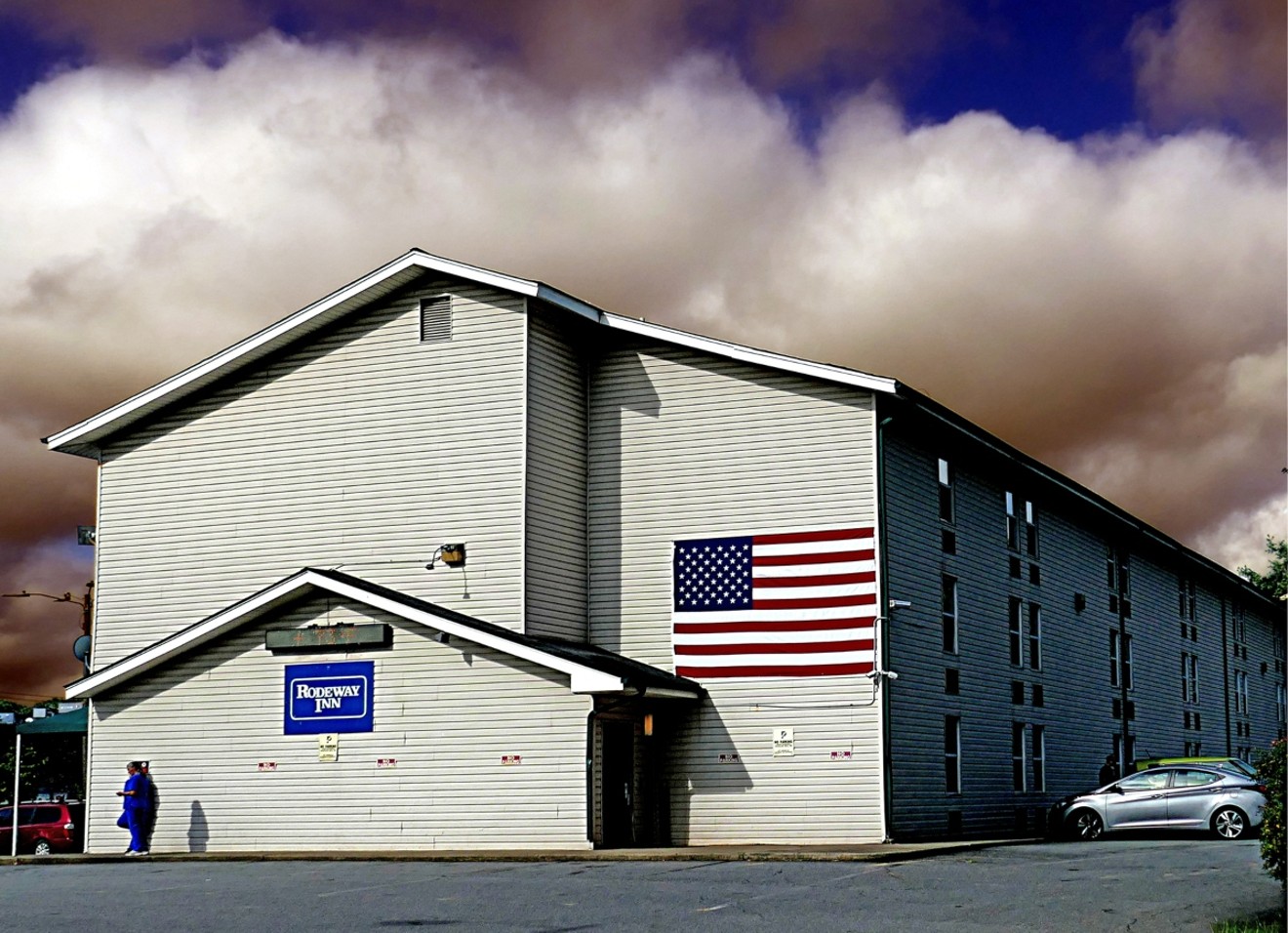Dozens of homeless Fort Lauderdale residents have been living in a hotel for the past few months, thanks to a now-lapsed city voucher program. But this weekend, they will be bused to area shelters — a move some of the more medically vulnerable say puts them at risk as Florida grapples with a surge in coronavirus cases.
The program was created to provide eligible homeless residents with shelter and to help them avoid exposure to COVID-19, which the state Department of Health (DOH) says has infected more than 311,000 people in Florida and killed nearly 5,000.
"We're trying to get people off the street so they don't get exposed to the virus," Fort Lauderdale Mayor Dean Trantalis told the Sun-Sentinel in May. "To allow people to be exposed to the elements and exposed to this contagion is inhumane.'"
For two months, the Rodeway Inn and Suites in Dania Beach has been home to at least 72 voucher recipients. In the first wave of the program, the city contracted with the Extended Stay America Hotel in Fort Lauderdale, which provided 37 rooms to accommodate people experiencing homelessness for 30 days, the Sun-Sentinel reported.
Funds for the program were initially fronted by the city and reimbursed using funds from the federal Coronavirus Aid, Relief, and Economic Security (CARES) Act money. Now that funding for the program has run dry, today and through the weekend officials will begin the process of transporting the residents to area homeless shelters, space permitting.
If voucher recipients aren't able to secure a spot at one of the shelters or aren't comfortable living in close quarters with strangers, they'll be back on the street.
Among the more vulnerable of the group are at least four pregnant women and one man with Stage 2 cancer, according to Jeff Weinberger, who runs the local advocacy group October 22nd Alliance to End Homelessness.
"During normal times, many homeless people for various reasons don't want to go to shelters," Weinberger says. "Why the fuck is anyone gonna want to go to a congregate shelter where the odds of contracting COVID are far greater than even being on the street, certainly far greater than being able to shelter in place at a hotel?"
Sheena Shaniyah Taylor, who is 35, pregnant, and suffers from seizures, fears the prospect of having to live in a communal shelter amid South Florida's worsening virus prognosis.
"I can't be homeless on the street because I'm pregnant and I need to stay here in this hotel where it's clean and safe," she says, adding that she once caught a bug from another person while staying at a shelter. "It was scary and horrific."
When it comes time to leave the hotel sometime this weekend, Taylor says she's unsure where she will live.
"I don't have nowhere to go," she tells New Times. "I can't be in no shelter, and I'm sick and tired of being sick and tired."
This past Sunday, the city issued a memorandum indicating that the program had expired and that everyone was required to check out the following morning. Hours later, however, Fort Lauderdale officials reversed course and, in a second memo distributed to residents, said they were permitted to stay for the time being, though it did not specify for how long.
Fort Lauderdale did not acknowledge multiple requests by New Times to interview Mayor Trantalis. But city spokesman Chaz Adams tells New Times in an email that the closure of the program has always been a possibility. During their hotel stays, residents have consulted with caseworkers in hopes of identifying more permanent living arrangements, he says.
"Upon accepting their hotel vouchers, clients were informed that the program was for 30 days with a possible extension to 60 days maximum," Adams says. "As case managers continued to work with the clients, they prepared them for the pending closure and next steps. Verbal notifications were given more than two weeks ago, and final written notification was provided last weekend."
Earlier this week, DOH officials were at the hotel testing each of the residents for COVID-19. Residents who test negative will be eligible to relocate to a shelter. Those who test positive will be placed in "alternative housing that will accommodate proper self-quarantine measures," Adams said.
The notion of moving residents from one place to another, however, did not come to fruition until Broward County was approached by the city for assistance about a week ago, County Mayor Dale Holness tells New Times.
When hotel residents were given their written notification last weekend — dated July 12 — it simply stated that they had to check out and leave by 11 a.m. the next day. Absent was any mention of buses, shelters, or coronavirus tests.
"Your meal final meal [sic] may arrive earlier than normal to ensure for a timely checkout," the memo said.
Holness says the county is now assisting Fort Lauderdale with the effort and expresses regret that its help wasn't sought earlier.
"That's the thing: They had no plan, no exit strategy," Holness says of the city's initial plan to briskly move residents out of the hotel.
Shana Cartwright, a 48-year-old who's pregnant, tells New Times she was tested for coronavirus on Monday but has not yet received her results.
"I really don't want to go to these shelters, because we don't know if they've been tested or not," Cartwright says. "And I don't want to put myself in harm or my unborn fetus in harm."
[
{
"name": "Air - MediumRectangle - Inline Content - Mobile Display Size",
"component": "19274298",
"insertPoint": "2",
"requiredCountToDisplay": "2"
},{
"name": "Editor Picks",
"component": "17482312",
"insertPoint": "4",
"requiredCountToDisplay": "1"
},{
"name": "Inline Links",
"component": "18711090",
"insertPoint": "8th",
"startingPoint": 8,
"requiredCountToDisplay": "7",
"maxInsertions": 25
},{
"name": "Air - MediumRectangle - Combo - Inline Content",
"component": "17482310",
"insertPoint": "8th",
"startingPoint": 8,
"requiredCountToDisplay": "7",
"maxInsertions": 25
},{
"name": "Inline Links",
"component": "18711090",
"insertPoint": "8th",
"startingPoint": 12,
"requiredCountToDisplay": "11",
"maxInsertions": 25
},{
"name": "Air - Leaderboard Tower - Combo - Inline Content",
"component": "17482313",
"insertPoint": "8th",
"startingPoint": 12,
"requiredCountToDisplay": "11",
"maxInsertions": 25
}
]













